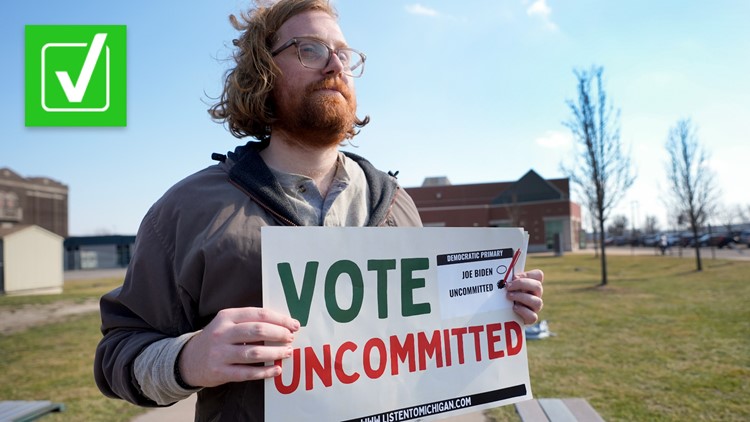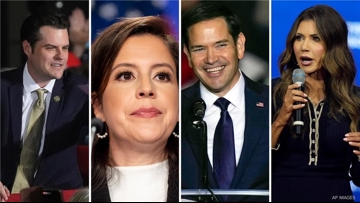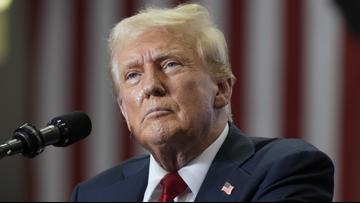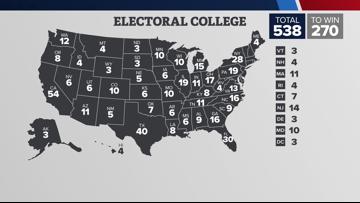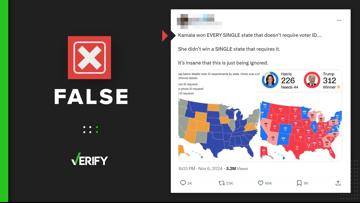On March 5, voters in more than a dozen states cast their votes in a 2024 presidential primary.
Among the states that held primaries, Alabama, Colorado, Iowa, Massachusetts, Minnesota, North Carolina and Tennessee gave voters participating in both the Democratic and Republican races an option to choose “uncommitted” instead of individual candidates or write-ins.
“Uncommitted,” “noncommitted” or “no preference” were choices on both parties’ presidential primary ballots. Choosing one of those options is a way for voters to participate in a party’s primary without picking an individual to support. “Uncommitted” vote movements have been popular among Democrats this election season, with organizers calling on voters to choose the option as a form of protest until President Joe Biden calls for a cease-fire between Israel and Hamas militants.
But what does a vote like that mean in the election process? The VERIFY team breaks down how uncommitted or no preference votes work.
THE QUESTION
Do uncommitted votes send delegates to a party convention?
THE SOURCES
- USA.gov
- Helen Brewer, a policy specialist with the National Conference of State Legislatures
- FairVote.org
THE ANSWER
Yes, if enough people vote uncommitted, the state party will send delegates to the convention unattached to a particular candidate. Those delegates are allowed to choose which candidate to support at the convention.
WHAT WE FOUND
During the presidential primaries, voters cast their ballot for the candidate they want to represent their political party. Those votes are tallied, and the state’s party awards delegates based on the results, according to USA.gov.
Although voters across the country cast ballots for their preferred presidential candidate in a primary election, it’s actually the delegates at the national party convention who select the presidential nominee for each major party.
Delegates can be assigned, or pledged, to a specific candidate. Or they are unassigned, or unpledged, and are able to vote for whomever they want at the convention. If a specific candidate gets enough support from voters, that candidate is allocated the appropriate number of delegates who are initially required or pledged to vote for them. If enough people select “uncommitted,” the appropriate number of delegates are allocated, but are considered unpledged or unassigned to a specific candidate.
“A certain percentage of voters have to vote ‘uncommitted’ in order for any delegate from the state to be uncommitted, just like a certain percentage of voters need to vote for [Donald] Trump or [Joe] Biden, for example, in order for a delegate to be bound to either of them,” Helen Brewer, a policy specialist with the National Conference of State Legislatures (NCSL), told VERIFY in an email.
The Democratic party has what’s known as the 15% rule. Under Democratic National Committee rules, any candidate — as well as “uncommitted” — is eligible to win delegates if they receive at least 15% of the statewide vote or 15% of the vote in any congressional district. Most Republican primaries award delegates according to a winner-take-all rule where first-place finishers win every delegate, according to FairVote.org.
For example, Minnesota Democrats held their primary on Super Tuesday, March 5. The “uncommitted” vote crossed the 15% threshold statewide. The resulting tally translates to 64 delegates pledged to Joe Biden and 11 for “uncommitted.”
In Colorado, “noncommitted delegate” only received 8% of the vote in the state’s Democratic primary on Super Tuesday, which is not enough to send a delegate. That means all 87 of Colorado’s delegates at the Democratic National Convention are pledged to Joe Biden.
Not all states are required to have an uncommitted option. That option is at the discretion of state parties, not state law or election regulations, Brewer told VERIFY.
The Associated Press contributed to this report.

